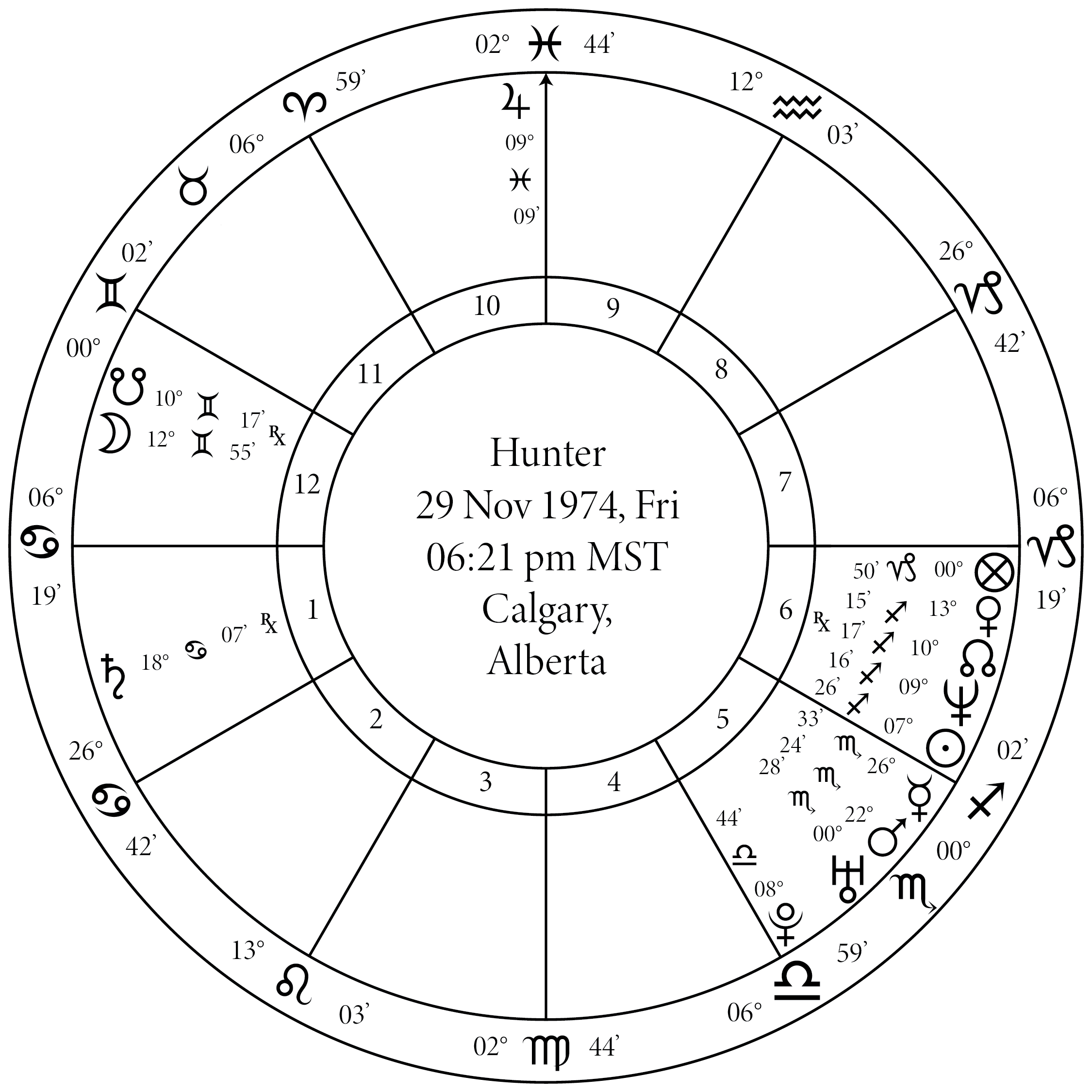
- Posted on
- No Comments
Hunter

Saturn rising
Whenever a planet is rising, the parts of the body that correspond with that planet will likely be highlighted within the life of the native. However, in the case of the malefics, their pathogenic effects will also be emphasized within the native’s life. Saturn governs the bones, teeth, hair, skin, and nails. However, Saturn also corresponds with depression, suppression of life-sustaining faculties, under-functioning, deterioration, and coldness. This can suggest that when the native becomes ill, these tend to be the primary symptoms that attend her illnesses.
Saturn rising also suggests that the native’s lot in life may have been objectively heavier than that of those around her. As a child, she may have felt burdened by her life circumstances in ways that led to depression or a more pessimistic outlook on life. This may have been because she had physical health concerns from an early age that did not leave her feeling safe within her physical body. The accumulative effect of these experiences could be a sense of being chronically “under the weather.” While this may not be universally true, these experiences of depression, anxiety, and chronic fatigue tend to be some of the psychological symptoms that are commonly experienced by people who have hypothyroidism.
Venus conjunct Neptune
Venus/Neptune is one of the primary astrological constants in cases of hypothyroidism. Venus governs the thyroid gland. Neptune corresponds with under-functioning and an overall lack of vitality.
Venus wide quincunx with Saturn
Venus/Saturn is one of the primary astrological constants for hypothyroidism. Venus governs the thyroid gland. Saturn corresponds with suppression of the natural functions of anything it afflicts. Thus, Venus/Saturn – much like Venus/Neptune – naturally denotes an under-functioning thyroid gland.
I have noted that this is a wide quincunx. Presently, I feel comfortable using quincunxes within a maximum four-degree orb. A five-degree quincunx feels as if it is moving too close to the territory of traditional aspect orbs. This chart already presents Venus/Neptune as the primary combination of hypothyroidism. Thus, this wide Venus/Saturn quincunx only serves as corroboration of what Venus/Neptune already denotes.
Sun conjunct Neptune
Sun/Neptune often corresponds with a weak constitution and fragile health. While this planetary pair does not point towards a specific area of the native’s constitution, it does denote that the health concerns of the native will tend towards being issues of under-functioning. This is not one of the specific astrological constants for hypothyroidism. However, in a chart that otherwise denotes that condition, this combination will serve as a strong corroborating factor.
Moon opposite Neptune
The Moon co-rules the physical body alongside the Sun within the charts of women. Moon/Neptune could suggest that the native has an extremely sensitive body and frail health in general. This combination denotes a suppression of the native’s vitality. While this is not an astrological constant for hypothyroidism, it denotes that the native’s constitution tends towards ailments rooted in the under-functioning of her body’s systems.
Moon parallel Saturn
Moon/Saturn within a woman’s chart could denote a hereditary predisposition towards poor health. She may have inherited her health concerns from her mother’s side of the family. This combination also suggests the tendency towards chronic ailments that cause lethargy, exhaustion, depression, and fatigue.
Sun parallel Saturn
Sun/Saturn suggests hereditary health concerns that come form the father’s side of the family. This combination corresponds with a suppression of her vital fire which may lead to the likelihood of chronic illness, lack of stamina, and a constant underlying sense of lethargy.
